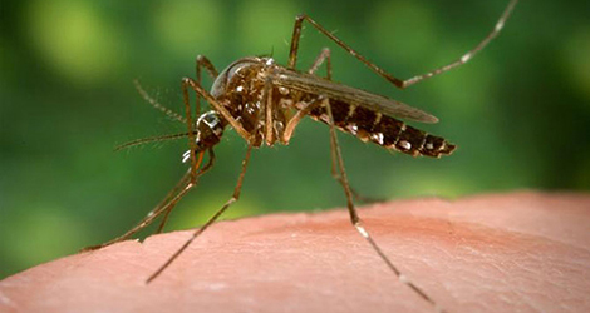
Play your role to end malaria: Dr Malm urges youngsters
The Programme Manager of the National Malaria Control Programme (NMCP), Dr Keziah Malm, has urged young people to take personal action in the fight against malaria.
That, she said, could be in the form of simply sharing accurate information on malaria prevention and control to educate their peers, volunteer their time for malaria control activities, such as distributing nets, and being part of community environmental improvement.
Advertisement
Dr Malm made the call in an interview to mark World Malaria Day, which fell last Monday, April 25. It was on the theme: “Advance equity. Build resilience. End malaria”.
She said young people should be advocates of positive social change by making sure that every fever was tested and confirmed to be malaria before being treated and sleep under insecticide-treated nets consistently.
Dr Malm said it was important for all to support the fight against malaria by not carrying out self-medication and rather report to the nearest health facility when they felt unwell.
Furthermore, she said all health professionals must ensure that all patients suspected to have malaria were first tested using the rapid diagnostic test (RDT) or microscopy, and that only those who tested positive for malaria should be treated with the appropriate and effective antimalarial medicines.
She emphasised that patients should complete the full courses of their prescribed medicines and return immediately to health facilities if they felt unwell.
She said in 2020, there were an estimated 241 million cases of malaria worldwide, with 627,000 deaths.
Children under five years, she said, were the most vulnerable group and accounted for 77 per cent of all malaria deaths in the world.
She indicated that the entire population was at risk because Ghana was one of the 11 countries which contributed 80 per cent of the malaria burden.
In Ghana, Dr Malm said, outpatient malaria cases decreased from 6,110,913 in 2019 to 5,733,013 in 2021, while malaria admissions also reduced slightly from 393,804 in 2019 to 391,052 in 2021.
She said the national malaria strategic plan 2021-2025 was aimed at a 90 per cent reduction in malaria mortality and a 50 per cent reduction in malaria incidence by 2025.
Additionally, it aimed to reach pre-elimination in at least six districts by 2025.
In order to achieve those objectives, Dr Malm said, the programme with stakeholders would continue with the mass distribution of long-lasting insecticidal nets, indoor residual spraying and larval source management.
Furthermore, the Intermittent Preventive Treatment for pregnant women (IPTp), seasonal malaria chemoprevention (SMC), case management and malaria vaccine implementation would be intensified, she said.
On the malaria vaccine, she said the pilot, which was conducted in Ghana, Kenya and Malawi from May 2019 to January 2022, ended successfully and the World Health Organisation had recommended the use of the vaccine (RTS,S) in children in malaria-endemic countries in Africa.
In all, more than one million doses were administered in Ghana and the Ghana Health Service is to scale-up malaria vaccination as part of efforts to eliminate the disease from the country.
Dr Malm appealed to the public to use the proven intervention available to prevent malaria and called on the media to intensify efforts to promote proper use of malaria control interventions.



